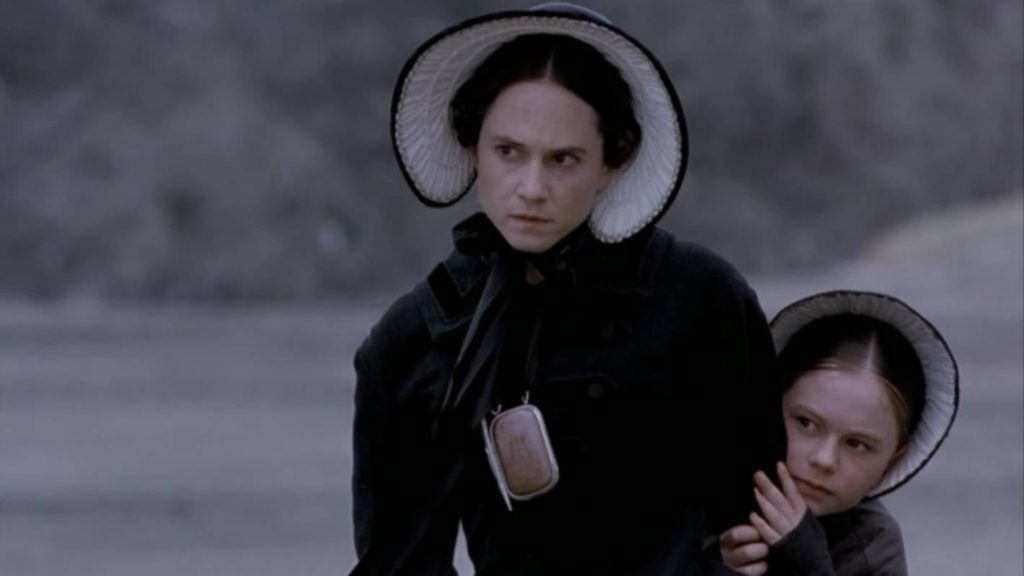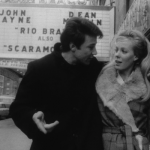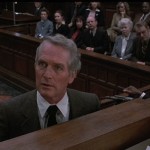The Piano

RATING: 



(4 STARS)
If you subscribe to the notion that the greatest movies transport you to a place you’ve never been and introduce you to people you’ve never known, The Piano is one of the greatest movies. Not your m.o.? Fine, but anyone who loves rousing melodramas, who appreciates impeccable acting, or who swoons over gorgeous camerawork will have to acknowledge that The Piano is one of the greatest movies. It has so much going for it that it’s honestly hard to put into words.
The place we’re taken to is the New Zealand coast in the mid-1800s. It feels a little like the Jamestown settlement of Terrence Malick’s The New World – slightly more developed, but not dramatically so, and with indigenous people and the white man trying to figure each other out. Our primary protagonist is Ada McGrath (Holly Hunter), a psychologically mute woman with a young daughter (Anna Paquin) who is sold into marriage with a frontiersman, Alisdair Stewart (Sam Neill). While she doesn’t speak, Ada feels like she still has a voice in the form of her piano, and after being unceremoniously dropped off on the beach of her adopted land, she’s forced to leave the heavy instrument behind.
It’s eventually claimed by her husband’s friend – a man named Baines (Harvey Keitel), who adopts some of the customs, including facial tattoos, of the Maori people these white people live among. Stewart makes an arrangement with Baines to have Ada teach the latter how to play the piano, but during their first “lesson,” Baines shows far less interest in learning the instrument than he does in Ada and listening to her play it. Eventually, they strike up a new agreement – he’ll give her the piano in exchange for visits totaling the number of its black keys. During these visits, he can do the “things he likes.”
What’s remarkable about the film is how much it moves from point A to point B without saying anything. It’s arguably the ultimate example of visual storytelling in recent movie history. At the same time, it has a remarkable score that propels the action forward in the best way. Yet when it needs to revel in silence, Campion lets it. Every choice she makes is perfect, and because of that, the film is filled with longing, regret, tension, passion, and dozens more emotions that enter and exit as they’re needed to help us understand these people and this place in proper order.
All these choices are for naught, however, without a performance as towering as Holly Hunter’s. What’s especially impressive about the film and this work is that the character’s condition robs us of being treated to one of the most distinctive voices in all of modern cinema, but the movie loses nothing for it. On the contrary, she dials up her physicality to an 11 to make sure we know exactly what this woman is thinking despite not being able to say so with words.
She’s matched in every scene no matter her partner. Keitel is a brutish beast who softens as his character’s relationship with Hunter’s gets more complicated. Sam Neill is a mess of a partner who is sad one moment and monstrous the next. And Anna Paquin gives the film an innocence it desperately needs without ever feeling too precocious for the environment.
Campion was the first female director to win a Palme d’Or at the Cannes Film Festival for her work here. She was also the second woman to ever earn a Best Director Oscar nomination, and if not for the towering achievement that is Schindler’s List that same year, it’s not hard to imagine that she would have broken the glass ceiling that Kathryn Bigelow eventually did some 16 years later. Still, The Piano is not just one of the memorable films of 1993, but truly one of the best of the entire decade, and while I still have a few first-time watches to get to, it’ll take something of borderline unparalleled excellence to top this title within Campion’s short but so far exhilarating filmography.













